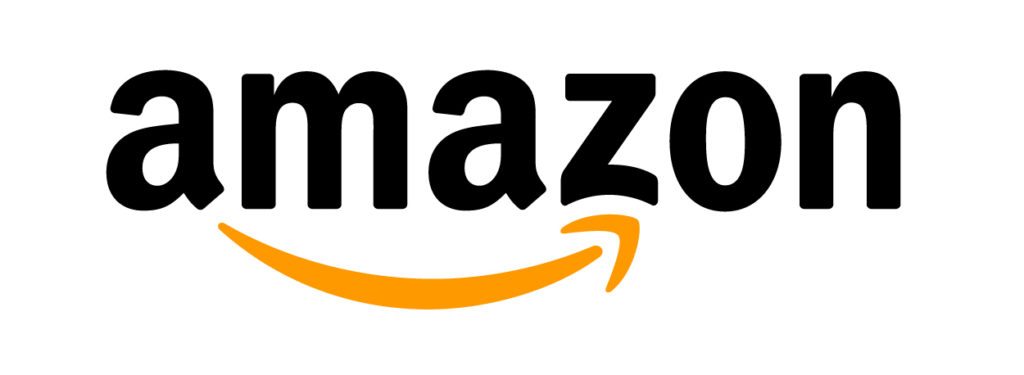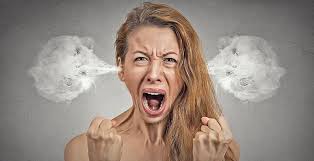Amazon Reportedly Has Thousands of People Listening To Snippets of Alexa Conversations (#GotBitcoin?)

Amazon Has Thousands Of Workers Around The World Who Review Alexa Conversations, Bloomberg Reported. Amazon Reportedly Has Thousands of People Listening To Snippets of Alexa Conversations (#GotBitcoin?)
Key Points

Their work is intended to help improve Alexa’s speech recognition technology.
Amazon has never disclosed that it has human workers listening to private Alexa chats.
Amazon has thousands of workers around the world who listen to and review private Alexa conversations with the goal of helping improve the speech assistant’s technology, according to Bloomberg.
The report said the Amazon team transcribes the recordings and shares the conversations with other parts of the company in order to make Alexa’s “understanding of human speech” better.
The team is spread across different regions, including Boston, India, and Romania, Bloomberg said, and some of the workers review up to 1,000 audio clips per shift.
Amazon has never publicly disclosed the role of this group or the fact that human interference is part of Alexa’s voice technology.
An Amazon spokesperson noted that employees don’t have direct access to information that can identify the people speaking or the account that the snippet came from. However, Bloomberg reported that recordings are associated with account numbers, device serial numbers and the owner’s first name.
The spokesperson said:
“We take the security and privacy of our customers’ personal information seriously. We only annotate an extremely small sample of Alexa voice recordings in order improve the customer experience. For example, this information helps us train our speech recognition and natural language understanding systems, so Alexa can better understand your requests, and ensure the service works well for everyone. We have strict technical and operational safeguards, and have a zero tolerance policy for the abuse of our system. Employees do not have direct access to information that can identify the person or account as part of this workflow. All information is treated with high confidentiality and we use multi-factor authentication to restrict access, service encryption, and audits of our control environment to protect it.”
Updated: 12-6-2019
Trump Administration Weighs Putting Amazon Foreign Sites on ‘Notorious Markets’ List
Some administration officials are advocating Amazon’s inclusion on the list but no decision has been made, people familiar with the matter say.
The Trump administration is considering adding some of Amazon.com Inc.’s overseas operations to a list of global marketplaces known for counterfeit goods, according to people familiar with the matter.
The action would be taken by the U.S. Trade Representative’s Office, which publishes an annual list of “Notorious Markets” that identifies online and physical marketplaces believed to sell or facilitate the sale of counterfeit goods and pirated content.
Some Trump administration officials are advocating Amazon’s inclusion on the list, which is expected to be released in coming weeks, according to the people. But no decisions have been made, and a similar push for Amazon’s inclusion last year failed, they said.
One of the people said advocates for including Amazon have cited news reports in The Wall Street Journal and elsewhere showing that as it has grown Amazon has become a larger source of counterfeit products and dangerous items.
The Notorious Markets list targets foreign platforms and marketplaces. The current list includes the Taobao.com site owned by Chinese e-commerce company Alibaba Group Holding Ltd. , which has protested its inclusion.
The American Apparel and Footwear Association, or AAFA, has formally requested that U.S. trade office add Amazon sales platforms in the U.K., Canada, Germany, India and France to the Notorious Markets list. The association said its members flagged those sites as the biggest source of problems among Amazon sites with thousands of counterfeit items and listings.
“AAFA members continue to report that it is a constant struggle to maintain a clean marketplace on Amazon platforms and that Amazon does little to vet sellers on its platform,” the group said in a Sept. 30 letter to the USTR. The group didn’t immediately return calls for comment.
Amazon responded to the apparel and footwear association’s contentions, saying in a filing with the USTR that it invested $400 million in 2018 alone for personnel to fight fraud and abuse. The company outlined various other actions, including offering free brand registration and help for emerging brands to obtain trademark and intellectual property protection.
In a statement to the Journal, Amazon said that it “strictly prohibits counterfeit products in our store and we invest heavily to protect our store, customers, and brands and as a result, more than 99.9% of page views by our customers did not receive a notice of potential counterfeit infringement.”
A USTR spokesman didn’t answer requests for comment.
The Notorious Markets list names and shames companies and countries that allegedly don’t take steps to stop counterfeiters. It doesn’t set official U.S. policy, but its prominence can be a public-relations problem for companies on the list and bring significant pressure to Washington’s international negotiations and interactions with them and their home countries.
Putting Amazon on the list would be the latest flashpoint between the administration and the online retailer led by founder and chief executive Jeff Bezos, a frequent target of President Trump.
Mr. Trump blames Mr. Bezos for unfavorable coverage in the Washington Post, which Mr. Bezos bought in 2013 for $250 million. The Post says its editorial decisions are independent.
More recently, Mr. Trump called for an investigation of a massive cloud-computing contract for the U.S. military that was considered likely to go to Amazon but ultimately went to rival Microsoft Corp. The contract award is now under protest by Amazon.
The White House declined comment.
The administration sees piracy as a rising concern for consumers and is looking for ways to improve and expand its enforcement against counterfeit goods in the growing e-commerce marketplace.
In April Mr. Trump signed a memorandum on “Combating Trafficking in Counterfeit and Pirated Goods,” saying they are a risk to public health and safety and pushing the government to find new ways of coordinating efforts to stop them.
“This president has decided that it’s time to clean up this wild west of counterfeiting and trafficking,” Peter Navarro, director of the Office of Trade and Manufacturing Policy, said at the time.
The concern about e-commerce stretches back to before Mr. Trump’s tenure, too. In 2016, the Obama administration returned Alibaba Group to the list, citing complaints about obstacles to removing counterfeit items from the site’s flea-market-like Taobao shopping platform.
Recent Wall Street Journal investigations have shown Amazon sites have evolved like a flea market, too, littered with products declared unsafe or banned by federal agencies.
The company exercises limited oversight over items listed by millions of third-party sellers, many of them anonymous, many in China, some offering scant information.
Updated: 6-22-2021
Amazon Wins Trial Over Technology To Order Groceries With Alexa
Amazon.com Inc. won a Texas trial in which it was accused of incorporating an Israeli company’s patented “smart kitchen” inventions for voice commands to shop for groceries online into the Alexa digital assistant.
Amazon didn’t infringe three patents owned by closely held Ikan Holdings LLC’s Freshub unit, the federal jury in Waco, Texas, said Tuesday.
Freshub said its inventions allow consumers to create shopping lists, establish a shopping cart and order from their local grocer by using voice commands or scanning bar codes of products with an internet-connected device. Amazon knew of Freshub and its patents when it incorporated the technology into its Alexa assistant and Echo smart speakers, and promoted it for use with its Whole Foods grocery chain, Freshub claimed.
Amazon accused the company of manipulating patent applications to ensure they covered Alexa and Echo after the popular products had already entered the market. Amazon also warned jurors that a victory for Freshub would mean more lawsuits by the company against other tech firms like Apple Inc. and Google Inc.
Freshub argued consumers using the technology spent more money, so it was entitled to $3.50 per unit sold with the functionality, for a total of $246 million. Amazon argued that the patents were worth at most $1 million.
The Whole Foods grocery chain, which Amazon bought in 2017, had held a series of talks with Freshub as early as 2014, while Amazon itself had talks with the company as far back as 2015, including a 2019 demonstration with Amazon’s general manager for Alexa Shopping, Freshub’s lawyers with Kramer Levin said.
Amazon denied infringing any patents, and contended they are invalid. Freshub was never able to persuade anyone else to license its patents or commercialize its ideas, and companies like Intel Corp. rebuffed offers to buy them, Amazon lawyers with Fenwick & West said.
Amazon also accused Freshub of defrauding the U.S. Patent and Trademark Office to obtain the patents. All three patents were issued in 2019, but originated with an application filed more than a decade earlier.
Amazon argued that the earlier application was for a refrigerator with a camera that would recognize product images. Freshub abandoned the application, first filed in 2005, and then revived it in 2017 — after Alexa and Echo were on the market — to take advantage of the emerging use of the Internet of Things, Amazon said.
Earlier this year, Amazon tried and failed to get the patent office’s review board to a second look at the three patents. Under a relatively new policy, the agency won’t review patents if a district court case is far enough along.
The case is Freshub Inc. v. Amazon.com Inc., 21-511, U.S. District Court for the Western District of Texas (Waco).
Amazon Reportedly Has Thousands,Amazon Reportedly Has Thousands,Amazon Reportedly Has Thousands,Amazon Reportedly Has Thousands,Amazon Reportedly Has Thousands,Amazon Reportedly Has Thousands
Related Articles:
Alert! 540 Million Facebook Users’ Data Exposed On Amazon Servers (#GotBitcoin?)
Amazon Tests Pop-Up Feature Touting Its Lower-Priced Products Over Resellers (#GotBitcoin?)
‘They Own the System’: Amazon Rewrites Book Industry By Marching Into Publishing (#GotBitcoin?)
Is It Really Five Stars? How To Spot Fake Amazon Reviews (#GotBitcoin?)
Amazon Targets Unprofitable Items, With a Sharper Focus on the Bottom Line (#GotBitcoin?)
Amazon, Amid Crackdown on Seller Scams, Fires Employees Over Data Leak (#GotBitcoin?)
Venmo And Amazon Hit By Breaches And Fraudsters (#GotBitcoin?)
These Companies Are Succeeding Despite Amazon Or A Slowing Economy (#GotBitcoin?)
Our Facebook Page

Leave a Reply
You must be logged in to post a comment.